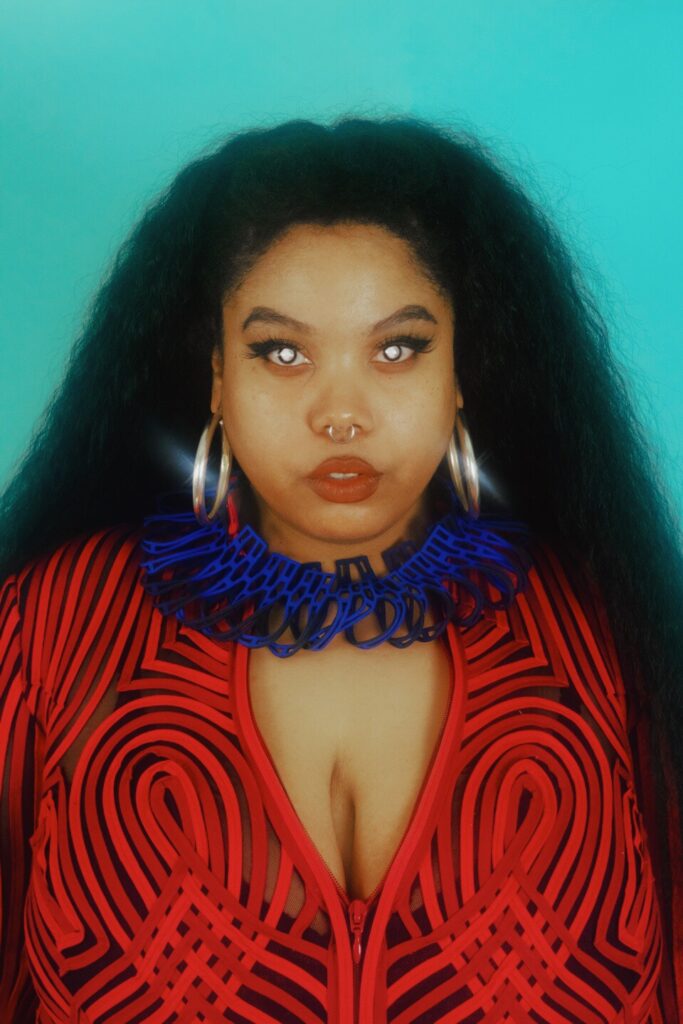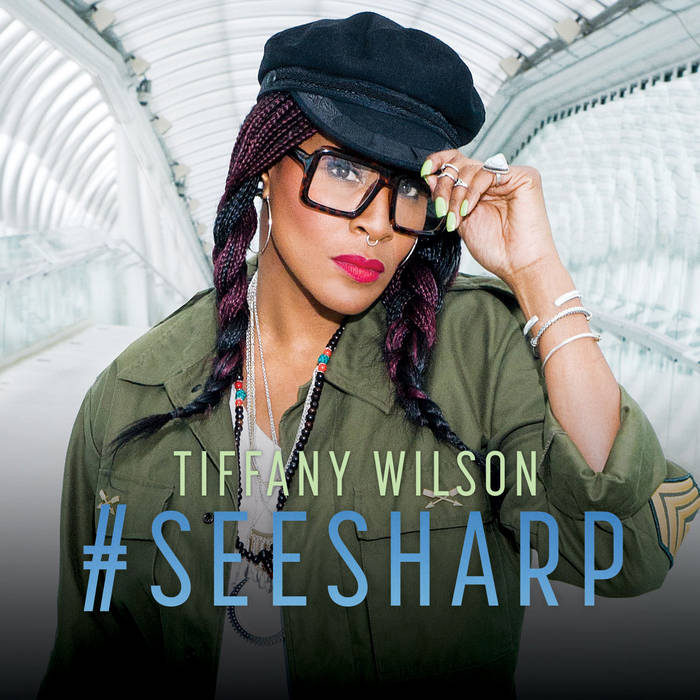Three Favorite Black PNW Artists: Representing Pop Music’s Continuum as Juneteenth Wanes

It’s late on Juneteenth, and Bandcamp is offering a new angle to their now-regular giving back to the community ’til midnight tonight. Today, the website’s donating its share of proceeds to the NAACP Legal Defense Fund. Even better, a ton of artists and labels are getting in on the action, rolling out special releases with proceeds going to a slew of eminently worthy organizations working towards racial justice and positive change (you can find a list of them on Bandcamp’s site, here).
In case you need some recommendations, you can head over to our earlier post of great PNW-based black artists selling their art on Bandcamp for suggestions.
Three releases on the website in particular, however, have been in joint rotation for me since I purchased them during Bandcamp’s previous waiver of the site’s sales share. And together they represent a strong through line between the past, present, and future of pop music.
I’ve been a huge fan of Seattle belter Tiffany Wilson for nearly a decade, and back when I first heard it in 2016, #See Sharp, her last full-length, blew me away. It’s great enough to talk about in more detail than the sentence I wrote about it back then, when it made its way to my Best-of-2016 list. Getting the opportunity to buy a quality digital copy of it a few weeks ago was a must.

#See Sharp was, as I’d briefly noted on another website at the time, Wilson’s swing for the fences, an incredibly purposeful collection of earthy old-school soul and funk songs with its eye squarely trained on issues of racial struggle and equality. Mary J. Blige channeling the spirit of Marvin Gaye and Curtis Mayfield provides a rough template, but #See Sharp is very much its own animal.
The organic surge of real horns, the muscular snap of an acoustic drum kit, and the slithery glide of some tasty wah-wah funk guitar imbue the record with warmth that’d thaw the polar ice caps, and Wilson’s singing and lyrics turn the heat and immediacy up exponentially. She released #See Sharp in the summer of 2016, when the specter of Donald Trump’s ascension to the White House was still just a troubling possibility, and even then, “Apocalypse Party” opened the album like a hard-funk middle finger in the air at that notion (“Prophecies fulfilled against our will, and that’s OK/we gonna party anyway”).
The righteous outrage that’s come to a head in the last few weeks, of course, has jolted the world with the sobering wake-up call that a certain Orange Affront to Democracy was just the symptom of some festering, centuries-old wounds. And with that in mind, Wilson’s voice and words feel certifiably evergreen. “The Justice,” a duet with Funklove, sounds off at racial profiling and police brutality with confidence, resolve, and one sleek get-down groove: Wilson and Funklove mine such a potent call-and-response hook out of the simple refrain of “Get offa me/Mister Officer,” you can’t help but want it to keep going (metaphorically and literally) to infinity.
And it’s not a stretch to hear deeper resonance in even the numbers that aren’t explicitly political: the luminous ballad, “Eyes Closed,” finds Wilson’s singing at her most angelic, but when she croons, “There seems to be a disconnect/between what you do and what you expect,” she could just as easily be talking about America as about a neglectful or abusive lover.
IBeBae, the new EP from Sassyblack, isn’t really preoccupied with the political, but that doesn’t mean it’s not deep in its own right. As with her last full-length (and one of Artist Home’s Top Ten PNW Albums of 2019), Ancient Mahogany Gold, Sassy’s deploying that sultry voice in an exploration of how self-discovery, self-love, and sexuality interconnect. When she purrs, “I love me, and so do you,” on the title track, her delivery’s less braggadocio and more aglow with the kind of quiet self-confidence that any sane person should desire and welcome from a paramour. Threading that strength together with her effectively stripped-down electro-funk hooks and trademark dusky voice puts iBeBae at five-for-five. If this quintet of tracks doesn’t get you feeling cosmic, connected, and carnal in one fell swoop, check your pulse.
At the risk of being redundant yet again, another Artist Home Ten-Best release from 2019, Guayaba Presents: Fantasmagoria from Bremerton-based singer/rapper Guayaba, has only blossomed to these ears since recently purchasing (and summarily re-binging) the entire album. If #See Sharp is the face of pop music mining continued relevance and immediacy from music of the past, and iBeBae is dance pop in its most up-to-the-minute glorious now, Fantasmagoria is the sound of the future—every last chaotic, mysterious, strange, frightening, and beautiful scrap of it.
Fantasmagoria’s built on a rhythmic foundation of trap-style electronic dance music, but that’s just the bare minimum of a jumping-off point. Elements of heady psychedelia, flamenco, Afro-Cuban traditional music, and stuttering electronics float, dance, and smear together, in a mixture that somehow challenges and enchants simultaneously.
Guayaba delivers many of her rhymes in an exaggerated, deep, guttural rap style so distinctive, you’ll question how this can be the same person deploying such a gorgeously theatrical trill of a singing voice through many of the same tracks. Her rapping on “Sanguijela” becomes yet another percussive element, even as she overdubs herself singing like a wounded Spanish angel in tandem with the choppily-spoken words.
There’s a dense, atmospheric dizziness to the music that slingshots from gorgeous melancholy (“D.U.M.E”) to an assemblage of horror-movie wails, moans, and screams rattling the brief but terrifying “And Thus, I Remain Crepuscular…”. The singing, coproduction (by Guayaba and Eric Padget), beats, samples, and acoustic instruments always stay sonically cohesive, no matter how kaleidoscopic the vibe gets.
Fantasmagoria is best appreciated when you listen to it in its entirety, more than once (an easy thing to do, as it clocks in at roughly 30 minutes). Simply put, it’s such a sonic feast, its sharp symbolic references to race take a few listens to unearth, and they’re all the more powerful in the swirl of the mix.
“Keep on living in your white house/but how many bodies are buried beneath the foundation it was built upon,” she spits out on “Orfeu Negro.” And when she sings playfully about her body being hollowed out and stuffed full of cotton on “Killing Jar,” the album’s most sublime culmination of ornate loveliness and unnerving eeriness, she’s come up with one of the most potent and chilling metaphors for the black experience in America this side of Billie Holliday’s “Strange Fruit.” Between that bit of quiet horror, and the sunbursts of beauty and acute awareness informing all three of these records, every dimension of Juneteenth’s importance and spirit comes through with crystal clarity.